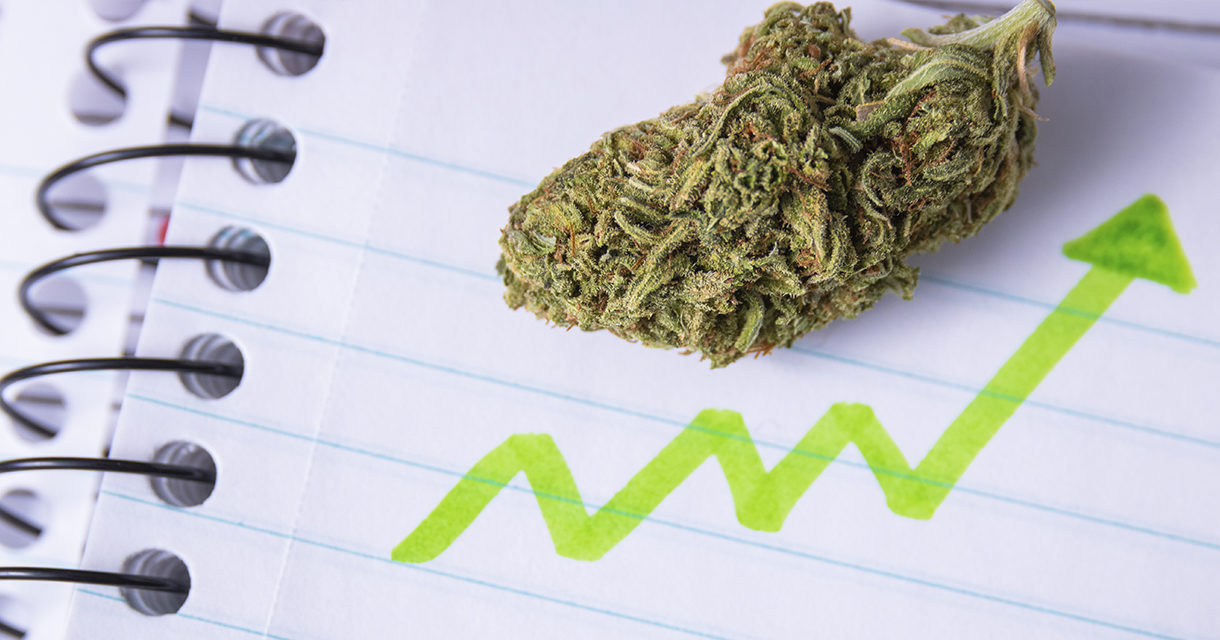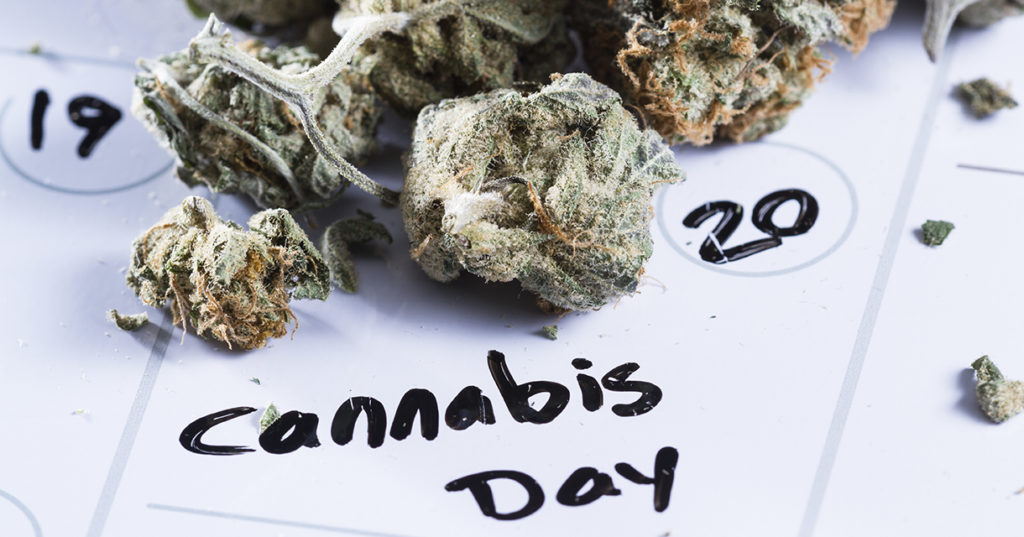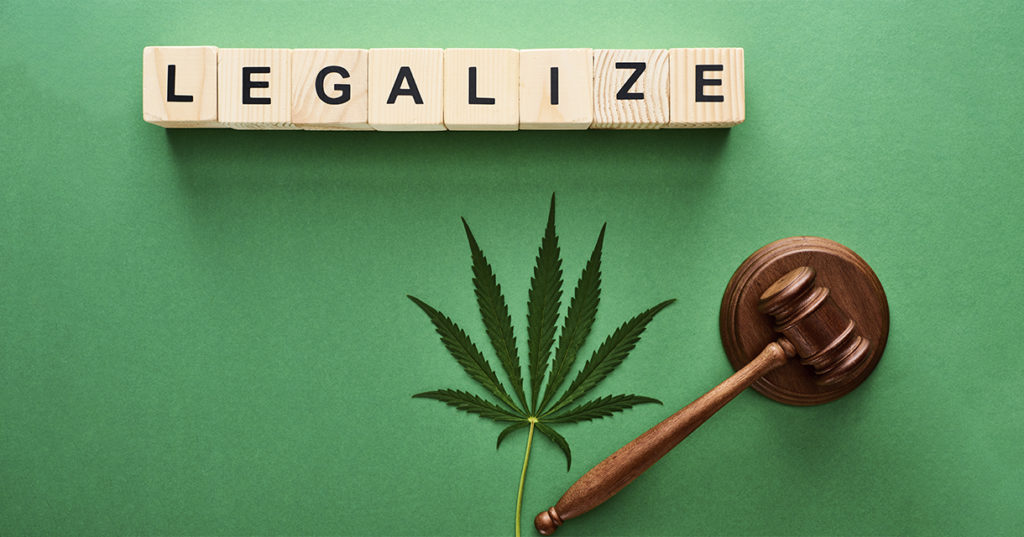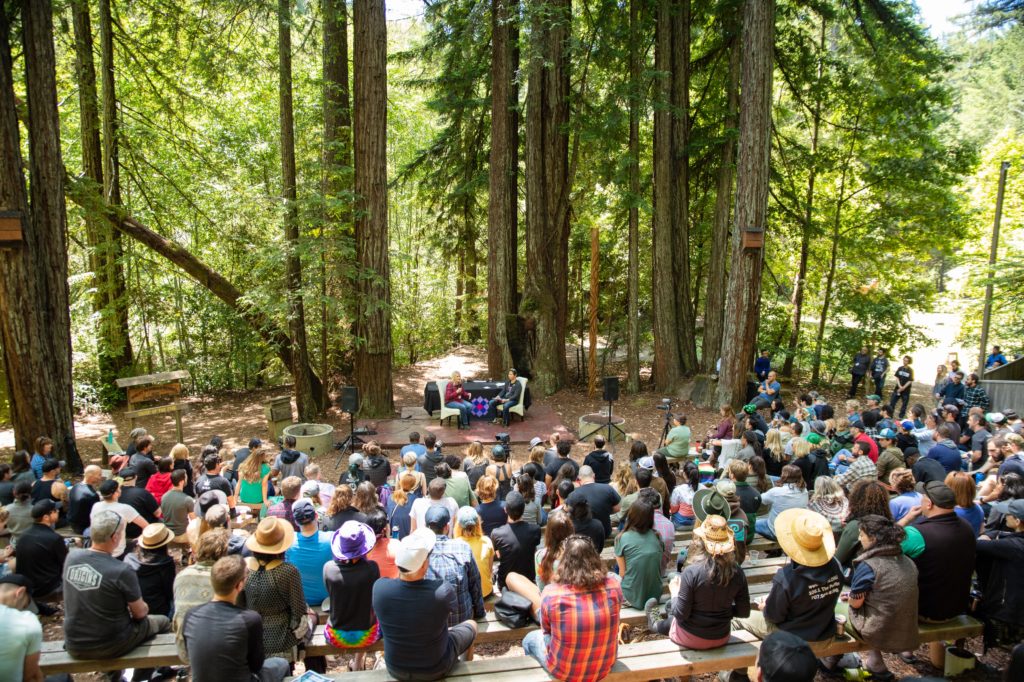Cannabis and the COVID-19 Economy

A look into the pandemic’s effects on the cannabis industry, featuring David Hua, Founder/CEO of Meadow.
The COVID-19 pandemic has proven to be more than just a health crisis, as the economy has taken a hit that the country hasn’t seen since The Great Depression. In response to physical distancing recommendations from the CDC and WHO, non-essential businesses have been forced to shutter indefinitely as shelter-in-place mandates have swept the nation, and many industries have been met with unprecedented challenges.
One, in particular, is facing a unique set of challenges as a fairly new and growing industry: cannabis.
This week, we are highlighting how the global pandemic has affected the cannabis industry as a whole, with contributed insight from David Hua, founder and CEO of cannabis technology company Meadow.
Cannabis as an Essential Service

One thing that has most largely helped keep the industry keep afloat is its designation as an essential service in states where medical/recreational usage is legal. This has allowed brick-and-mortar dispensaries to continue operating, albeit in compliance with CDC-recommended physical distancing and hygiene practices.
In compliance with physical distancing mandates, the dispensaries have also gone the way of grocery stores, pharmacies, and other essential retail businesses by ramping up delivery, curbside pick-up, and even drive-thru order fulfillment. Legalized states have also loosened restrictions on how cannabis can be obtained, such as allowing for prescriptions via telehealth.
Thanks to its essential service designation and increased ease of access in certain states, cannabis sales in legalized states are seeing record-breaking numbers as people stock up in response to shelter-in-place orders.
According to the Cannabis Industry Times, the cannabis industry is also exhibiting characteristics of what is known as a “counter-cyclical industry,” a term used to describe businesses that “maintain demand for products or services during economic downturns.” Much like “vice industries” like alcohol and tobacco saw sales remain steady, and even increase, during the 2008 Recession, cannabis appears to be following the same trajectory:
“No industry is recession-proof and history cannot be drawn upon to evaluate the cannabis industry because it was too young to have been significantly impacted by the last recession that began in 2008. The fact that cannabis businesses have been deemed essential suggests that cannabis has demand characteristics that would help the industry be recession-resistant and that sales could remain steady.”
4/20 and Virtual Events

4/20, the unofficial holiday celebrating all things cannabis, has become a more commercial event in recent years as more and more states jumped on the legalization bandwagon.
 Though 4/20 has typically been celebrated by large outdoor gatherings of cannabis enthusiasts, the pandemic and shelter-in-place orders did not stop the celebrations. Much like Zoom birthday and happy hours, the holiday turned virtual as brands and consumers alike hosted online gatherings celebrating all things cannabis. Some events even took on a philanthropic tone, raising money for both COVID-19 relief and cannabis non-profits.
Though 4/20 has typically been celebrated by large outdoor gatherings of cannabis enthusiasts, the pandemic and shelter-in-place orders did not stop the celebrations. Much like Zoom birthday and happy hours, the holiday turned virtual as brands and consumers alike hosted online gatherings celebrating all things cannabis. Some events even took on a philanthropic tone, raising money for both COVID-19 relief and cannabis non-profits.
Legal Hold-ups & A Still-Uncertain Future

Despite its successes, the pandemic has also continued to shed light on a lot of the legal red tape that the industry as a whole still faces today.
Despite its designation as an essential service in most legalized states, because cannabis use (medical or recreational) has not been legalized by the federal government, cannabis companies have not been eligible for the same federal relief funds that have been made available to keep businesses running in light of the pandemic’s economic downturn. Its federal legal standing also makes it difficult for those companies to secure relief loans through private investors and banks.
In response to this, industry groups have banded together to ask legalized states to consider opening up state-level relief funds to cannabis companies. Last week in Massachusetts, a hearing was held to discuss state legislation that would allow for business loan funds to be awarded to cannabis companies that did not qualify for federal business loans. Massachusetts was also the only state with legalized recreational use that did not designate recreational cannabis as an essential service, forcing the closure of non-medical dispensaries in the state; as the state looks to begin their first phase of reopening, recreational dispensaries will be included, but only for curbside pick-up.
With the civil unrest currently taking place in the nation, cannabis dispensaries have also found themselves facing unique challenges due to hold-ups with federal legalization. According to reporting by Leafly, cannabis dispensaries are being targeted by professional burglars not part of the protests/looting that resulted in response to the murder of George Floyd. Many of these legal cannabis dispensary operators across the nation that have experienced targeted break-ins over the last couple of weeks face further difficulties as businesses whose insurance coverage has already been uncertain due to federal legal standing.
Spotlight on Meadow

When it comes to companies that seemed poised and ready to weather the storm brought on by the pandemic, Meadow is at the forefront in the cannabis industry.
As “California’s industry-leading POS and dispensary management software,” Meadow found themselves in the perfect position to help dispensaries in CA adapt to the ever-changing landscape created by COVID-19 by helping “upgrade shops across the state to our all-in-one system to streamline their operations and allow them to continue to serve customers safely and compliantly,” according to founder David Hua. Because they already saw the value in having these sales channels in place, Meadow’s platform had support built-in for “delivery and pickup workflows” even before the pandemic, which meant that dispensaries already using Meadow were able to easily pivot and transition into fulfillment via delivery and curbside pick-up. According to Hua, these sales channels will likely remain even as businesses start opening back up.
Hua acknowledges the challenges that the cannabis industry has faced with regard to its federal legal standing and how it has impacted the industry from a financial standpoint, specifically because federal relief programs are not accessible to cannabis companies. He predicts that “[while] our industry is exceptionally good at being flexible and getting creative with ways to survive, this, unfortunately, will be an extinction event for some who don’t have the runway or access to capital that they need.”
Not all hope is lost, however. Regarding cannabis’s designation as an essential service, Hua believes that this was “one of the brightest silver linings of the COVID-19 pandemic,” and that its designation will help with the progression towards legalization on a federal level. As mentioned previously, leaders in the cannabis industry banded together to help create the “SAFE Banking Act,” which would extend relief funding in Congress’s next round of economy relief packages to include cannabis businesses.
“The essential service designation definitely expedited this push for a more sensible cannabis banking policy in this legislation, and I think we’ll continue to see a growing demand for cannabis businesses to have the same rights as any other small business in America as the world realizes both the true economic potential and wellness benefits of this long-stigmatized, healing plant.”
Meadow as a company has also been able to adapt itself to the current business climate. The company has transitioned to remote work in order to continue creating and publishing “digital educational content, online events, and guidebooks to help dispensaries survive and thrive.” They are also continuing to improve the platform by creating more “smart tools that help dispensaries navigate regulations, manage inventory, market to their customers, streamline operations and grow their businesses.”
Meadowlands 2020

For the past few years, Meadow has also hosted an industry retreat called “Meadowlands” for California-based cannabis companies, born out of the success of “hosting hundreds of educational and community events across California to build a more united and collaborative cannabis community.” According to Hua, the purpose of the event is to “help cannabis industry leaders get to know each other as humans and share wisdom in the great outdoors—it’s a 4-day weekend of learning, growing, networking, with some entertainment and wellness activities.” With one of Hua’s “main priorities [being] legislative work and advocacy to streamline the way we do modern cannabis business,” Meadowlands is “essential for [attendees] to come together so [they] can continue to grow together and move the industry forward.”
As of now, Meadowlands continues to move forward with adjustments in accordance with safety guidelines. The event was postponed from June to its new dates in October, and capacity will be capped at “25% of the total guest capacity of Camp Navarro’s 200-acre property,” where the event will be held. In response to increased interests, however, a “digital component” to the event is also being considered as an alternative to those that cannot attend due to the lowered capacity cap.
For more information on Meadow, please visit their website.

As a newer industry that is essentially facing its first national economic crisis, it’s tough to predict exactly what will come of the cannabis industry once the economy starts to recover from the pandemic. Industry professionals, however, remain hopeful for its future.
“While the country is experiencing the worst level of joblessness since the Great Depression, the cannabis industry has instead hired thousands of additional workers and drivers to keep up with demand while people shelter in place. The cannabis industry gives American families honest income while providing extremely valuable tax revenue that will help fill the government’s budget deficits. The growing power of cannabis as a force for good is undeniable.”
We are a unique collective of ambitious makers, doers, and dreamers that work as one to push forward the power of what’s possible.
FG|PG was founded nearly 21 years ago. Today we’re one of the largest woman-owned, WBENC Certified, live, hybrid and virtual experiential agencies in the US. That trajectory isn’t accidental. It’s the result of a commitment to continually evolve, to never stop learning, and to always listen to our clients’ needs.